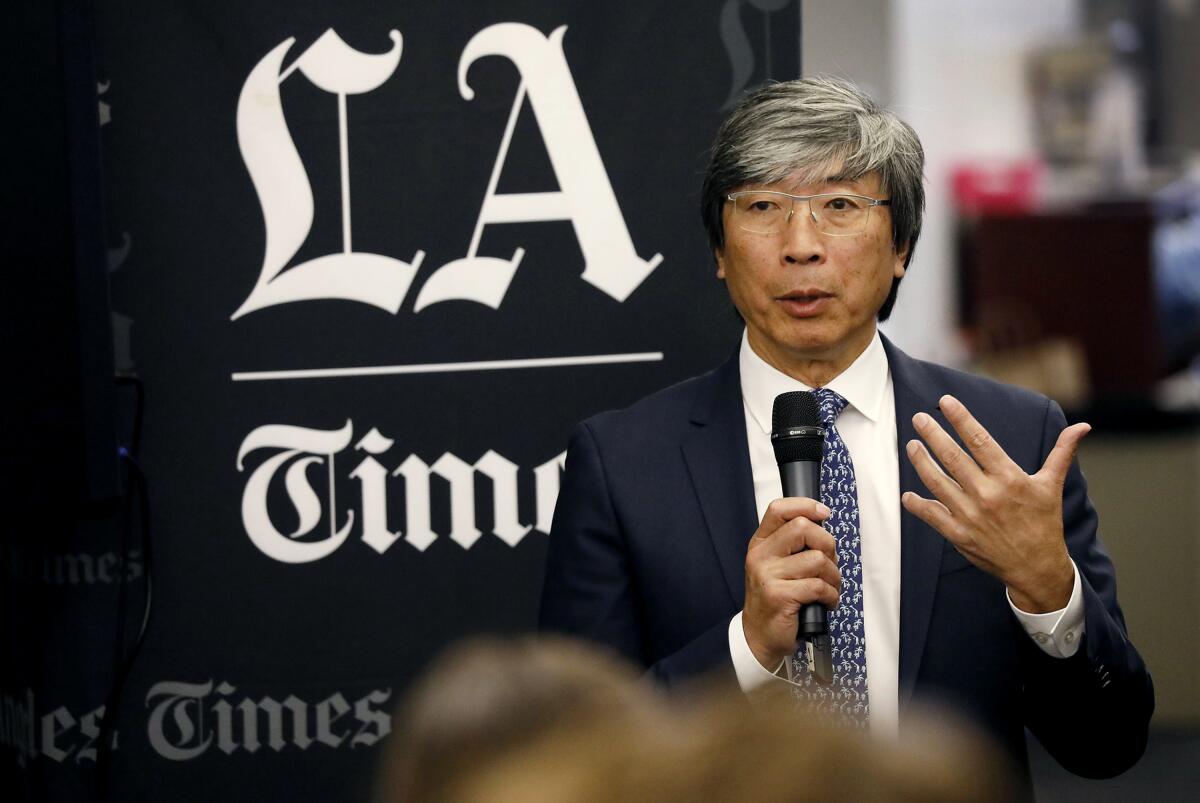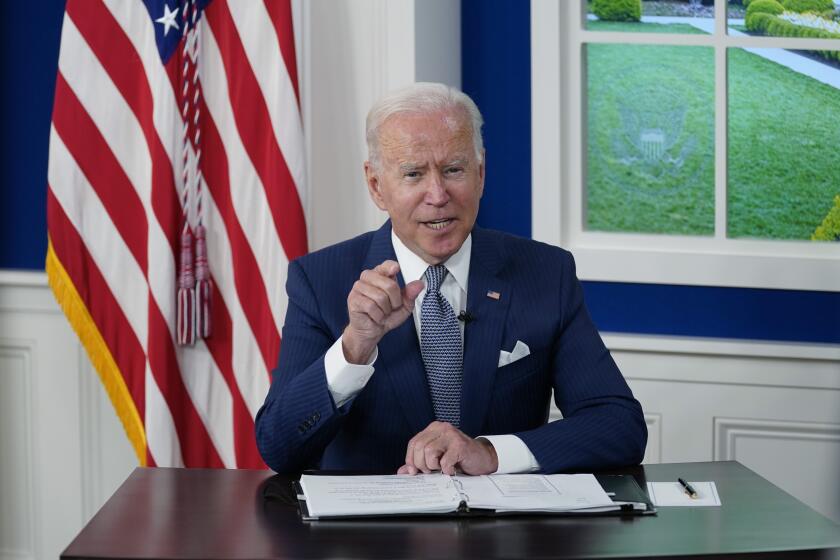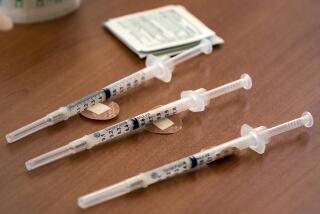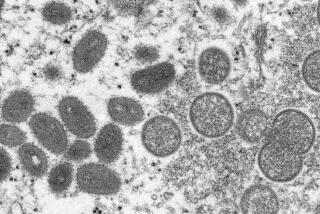L.A. Times owner plans South Africa vaccine plant

South African-born biotech billionaire Patrick Soon-Shiong’s NantWorks has agreed to invest in a manufacturing plant and complex in the country’s Western Cape and aims to produce COVID-19 and cancer vaccines.
Technology transfer is expected to take place within the next three months and production of shots for use across Africa is expected to start in 2022, the company said in a statement Thursday.
NantWorks has signed a collaboration agreement with the South African government’s Council for Scientific and Industrial Research, the South African Medical Research Council and the Centre for Epidemic Response and Innovation. Three local universities are also party to the pact.
Soon-Shiong, who has a net worth of $11 billion, according to the Bloomberg Billionaires Index, was born in the South African coastal town of Gqeberha. He made his fortune after inventing cancer drug Abraxane in the U.S and has sold two firms for a combined $7.4 billion. His assets include the Los Angeles Times and a share of the Los Angeles Lakers.
President Biden’s commitment will bring to more than 1 billion the total COVID vaccine doses the U.S. has pledged to other countries.
“It has been a dream of mine, since I left the country as a young physician, to bring state-of-the-art, 21st century medical care to South Africa and to enable the country to serve as a scientific hub for the continent,” said Soon-Shiong, who is founder and chief executive of NantWorks.
The facility will be owned by NantAfrica, a newly created unit of NantWorks, with initial expenditure projected at 3 billion rand ($203 million). Although it won’t be seeking government money if it is to eventually start exporting vaccines, it will need government help in the form of tax incentives and “a reduction of red tape,” Soon-Shiong said.
The company will build manufacturing facilities and a biologics manufacturing campus. Technology, know-how and materials for DNA, RNA, adjuvant vaccine platforms and cell therapy will be transferred to South Africa.
“There is no reason we couldn’t make 500 million doses a year,” Soon-Shiong said in an interview. “Subject to the raw material being available.”
The universities of Cape Town, Witwatersrand, Stellenbosch and KwaZulu-Natal will help set up centers of excellence that will treat infectious diseases including HIV and tuberculosis as well as cancers. Another initiative will enhance rapid genomic surveillance of and response to viral mutations occurring in Africa, the company said.
NantAfrica wants to tap South African medical expertise in treating diseases that are prevalent in the country such as HIV, tuberculosis, human papillomavirus and cervical cancer, Soon-Shiong said.
“There are fantastic scientists with deep knowledge about these diseases,” he said. “More so than in America because they see these patients every day.”
“It is a game changer for our country,” South African President Cyril Ramaphosa said in an online news conference.
It adds to other pharmaceutical initiatives in the country. Aspen Pharmacare Holdings Ltd. is making COVID-19 vaccines for Johnson & Johnson. Cape Town’s Biovac Institute will make COVID-19 vaccines for Pfizer Inc., and the World Health Organization is setting up an mRNA vaccine hub in Cape Town.
NantWorks and its affiliates are conducting a COVID-19 T cell vaccine booster trial in healthcare workers in Cape Town. A second-phase COVID-19 T cell vaccine trial will be initiated to evaluate the first “heterologous RNA + DNA T cell vaccine,” the company said.
The vaccine targets the nucleocapsid protein at the core of the coronavirus, which is less prone to mutation.
“It is my belief that this is our path to stopping this pandemic,” Soon-Shiong said. “This is our path to stopping all these mutations.”







